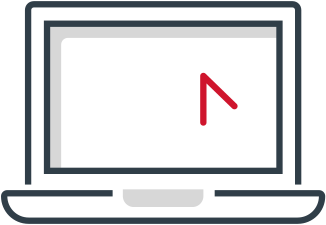Auto logout in seconds.
Continue LogoutClinicians are often overwhelmed by surges of emails from patients seeking medical advice. Writing for STAT News, Mohana Ravindranath explains why the University of California, San Francisco (UCSF) has decided to allow clinicians to bill insurers for certain types of medical correspondence.
The 4 questions to ask before you hit 'send'
Virtual correspondence places a burden on many clinicians
During a typical week, primary care doctor and UCSF's associate chief medical information officer Maria Byron spends several hours going through emails from patients seeking her medical advice on everything from medication management to issues that were not addressed in prior appointments.
Despite this time investment—and even though UCSF has experienced surges from a few hundred thousand of these emails in 2016 to roughly two million in 2021—Byron and other clinicians usually do not receive payment for the hours they spend answering emails.
"It's become sort of this extra thing that physicians are spending multiple hours a day doing … that starts to weigh on people," Byron said.
Separately, Tim Judson, a UCSF hospital medicine and urgent care physician who studied patients' response to electronic communication, said of the situation, "Imagine being sent 50 emails a day, all asking for your advice, but having a packed schedule without any time to answer them. That's how most doctors feel every day."
UCSF allows clinicians to bill for some virtual correspondence
In response, Byron is conducting a novel experiment at UCSF to allow clinicians to bill insurers for certain types of medical correspondence—partly to help address the burnout caused by the unpaid tasks clinicians take on, and partly to incentivize clinicians to spend a portion of their workday answering patient emails.
The experiment, which began in November 2021, allows doctors, nurse practitioners, physician assistants, and several other UCSF clinicians to bill payers for any patient email that involves a medical evaluation or requires more than just a few minutes to respond, Ravindranath writes.
According to Byron, the move follows pandemic-era policy from CMS that allows Medicare reimbursement for these types of messages, known as e-Visits. Notably, Byron said most commercial payers who work with the health system have followed suit.
"If it's not valued and recognized via any payment, it's very difficult for the health care organization to move [email] into a sort of daytime activity," Byron said.
However, Byron said it is still unclear exactly how much of that payment goes back to clinicians since reimbursement varies between each payer and department. So far, UCSF has collected an average reimbursement of $65 per email consultation—even though patients don't usually pay much, if anything—for these types of consultations.
Although the program could provide an outline for other health systems who also want to compensate clinicians for these consultations, it has led to a debate about the potential effects of new billing categories. In fact, some experts have voiced concerns that this type of program "could create more administrative burden, irk patients who are hit with unexpected co-pays, and move further away from payments rewarding the quality, and not the volume, of health services," Ravindranath writes.
"As nice as it is that these now get paid for, it's just created another bucket" for billing, said UCSF professor Julia Adler-Milstein, who studies health IT. "It feels a little untenable to keep creating all these buckets, and this feels like kind of a test if this strategy is going to work."
Separately, Lawrence Casalino, a population health science professor at Weill Cornell Medicine, voiced concern that billing patients for virtual correspondence could cause them to switch providers. "If the organization is going to try to bill for these things, patients are going to be unhappy," he said.
However, Byron notes, "It's important to recognize that [virtual care] is valuable in the same way that an in-person visit is valuable."
Ultimately, Casalino said, "We're going to put increasing effort into finding a solution, because it just is hard to exaggerate how unhappy this is making physicians."
"We have to experiment," he added, but "while the experimentation goes on, I think the clinicians who provide care are really suffering." (Ravindranath, STAT News, 1/21)

If you're like most of us, your email inbox is overflowing with vague, unnecessary, or unactionable emails—but let's face it: You've probably sent more than a few emails that fall into those categories, too. Here are the four questions to ask yourself before you hit "send" to make sure your next email gets the response you need.
Don't miss out on the latest Advisory Board insights
Create your free account to access 1 resource, including the latest research and webinars.
Want access without creating an account?
You have 1 free members-only resource remaining this month.
1 free members-only resources remaining
1 free members-only resources remaining
You've reached your limit of free insights
Become a member to access all of Advisory Board's resources, events, and experts
Never miss out on the latest innovative health care content tailored to you.
Benefits include:
You've reached your limit of free insights
Become a member to access all of Advisory Board's resources, events, and experts
Never miss out on the latest innovative health care content tailored to you.
Benefits include:
This content is available through your Curated Research partnership with Advisory Board. Click on ‘view this resource’ to read the full piece
Email ask@advisory.com to learn more
Click on ‘Become a Member’ to learn about the benefits of a Full-Access partnership with Advisory Board
Never miss out on the latest innovative health care content tailored to you.
Benefits Include:
This is for members only. Learn more.
Click on ‘Become a Member’ to learn about the benefits of a Full-Access partnership with Advisory Board
Never miss out on the latest innovative health care content tailored to you.
